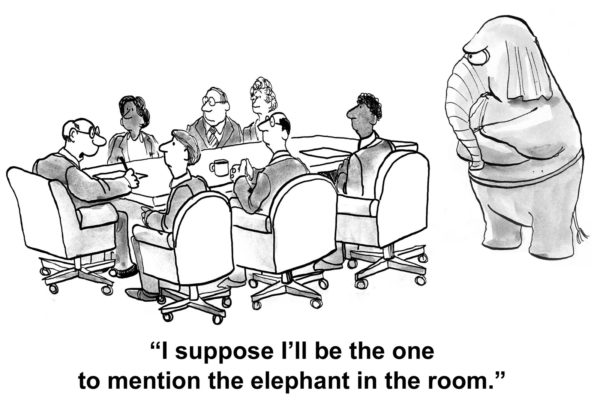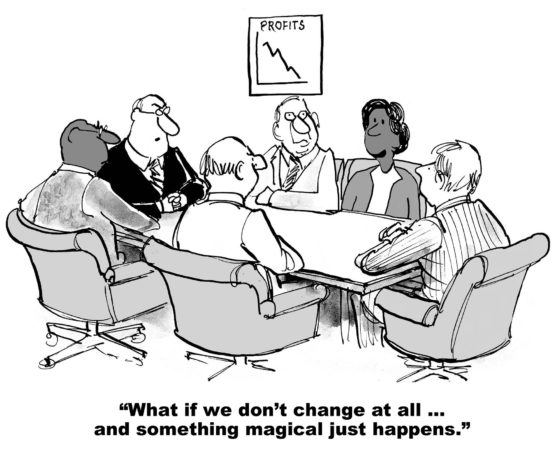It’s Time For Airlines To Invest In Becoming More Reliable

In case you missed it, we’ve had a couple of major technical issues with the Big 3 airlines recently. First, United had to ground all their flights for a few hours. This happened on a Sunday evening. That’s one of the worst times an airline could have a problem, since Monday is a busy day for business travel. Luckily, the outage was only a few hours and United was able to get things mostly right by morning.
The very next Sunday, Delta had an outage forcing them to ground their fleet. That outage lasted longer and appeared to have a much more significant impact on Monday travel. There were reports of planes sitting on the tarmac for hours waiting to get a gate Sunday evening. It was just a big mess. American Airlines has had their issues, though not as recently as Delta and United.
Why Does This Happen?
This is a great question. Before I hop up on my soap box, let’s discuss why these outages happen. Not the exact reason for the breakdowns, but the general reason we’re where we are. The Big 3 airlines all have reservations and operations systems that are built on decades old technology. For that matter, so does Southwest. Heck, for a long time Southwest used to schedule their entire fleet on a big Excel spreadsheet. And, it wasn’t that long ago (within the last 10 years, IIRC).
These legacy systems the airlines employ are built on very old technology. They have newer pieces here and there, but the engine is software that hasn’t been considered innovative for a long time. The cost to update their technology (or start over) is likely very high. And, the cost for 100% up-time is equally high. I was having a conversation with a friend who works for IBM. He noted that reliable systems are their bread and butter nowadays, but at a steep price.
It’s Time
I’ve said this before, but we’re way past the time when airlines need to stop relying on systems older than me. Redundancy is essential in today’s world. The counter argument by folks I respect is that it’s easier said than done. I’ve never believed it’s as tough as some people make it out to be. Put another way, the big boys of tech (Amazon, IBM, Microsoft, Oracle) build very complex systems that just work. They have the advantage of not needing to build on legacy technology, but that’s just an excuse for the airlines.
When there have been outages in the past, the airlines avoided widespread criticism by the analysts that grill them on the quarterly earnings calls. And, frankly, that’s probably the single biggest reason they still use those legacy systems. If the folks that help drive their stock price up and down aren’t concerned, who else is going to push the airlines to fix this problem? Customers are filling up planes for Delta and United again this week, so there’s no big push there.
The airlines are making a strategic decision that it’s cheaper to compensate customers when a problem happens rather than make sure one doesn’t. United Airlines reported over $2 billion (with a B) in profit for 2016. Delta reported almost that much for their 3rd quarter of 2016.
Yes, there are airplanes to buy and maintain. There are plenty of capital investment projects. They’ll need to pay their employees more in the future, and they need to preserve cash for the lean years.
But, it’s 2017. We’re way beyond the turn of the century. This technology that was old well before then. My recollection was that Southwest picked up an entire extra plane’s worth of scheduling when they switched from an old spreadsheet to a computerized scheduling system. More efficient systems can make a world of difference.
Millions of dollars were wasted during the most recent outages. People missed meetings, time with loved ones, and vacations. The airlines paid out to customers that were inconvenienced. Nobody wins when problems like this happen. But, they don’t have to happen.
It’s Time
The post It’s Time For Airlines To Invest In Becoming More Reliable was published first on Pizza in Motion




Well written post. However many CEO’s and their boards will push this upgrade and it’s costs down the road and hope the inevitable IT failure doesn’t come on their watch. Especially when raking in record profits.
No doubt, Chris. It’s expected and disappointing.
My alternate view:
When Delta had the last couple of outages it was their newer systems which were paralyzed. They had to fall back to the old command-line based systems to get anything done at all. And at least with the outage that occurred 6 months ago the cause wasn’t software failure — it was that some power systems weren’t up to snuff — i.e. backup power was supposed to be in place and someone dropped the ball. I don’t know what caused the failure a week ago.
The old software is *extremely* reliable. It’s been working for decades and the bugs have been worked out ages ago. Why modernize just for the sake of “new”? The hardware, on the other hand, needs to be kept up to date.
Bill, if they don’t have reliable backup power, then they don’t have reliable enough systems. The old software may be reliable (I’d argue it’s not as reliable as you think once they started trying to upgrade it) but if there’s no reliable backup systems they need to do more. My understanding was that the computerized weight & balance was an issue this time and they ended up having to do manual calculations once some of the systems came back online.
It’s time for Congress to outlaw the completely one sided contract of adhesion called the Conditions of Carriage. It’s patently unfair for airlines to charge outrageous fees for flight changes or cancellations when airlines can make whatever changes they want with no consequences. Crew called in sick? Plane broke? Too bad. Maybe we can you a seat next a Tuesday. Delayed for hours? We’ll just call it weather related because then you have no recourse. My time is free for airlines so no need to have spare planes or crews.
Of course this will never happen because the airline lobby and unions own Congress.
I’ve always said it was unfair that the airlines have unbalanced pain when something goes wrong versus our penalties when we don’t make a flight. I remember sitting with Scott McCartney from the WSJ a number of years ago. I’m pretty sure he quoted me on my “get out of jail free card ” idea for elites. For every X miles flown, you get one free change/mistake, etc.
“Get out of jail free,” is a utopian idea that would never truly work. Why? Because after people use their two “Get out of jail free cards” they will still ask for discretionary waivers. Seriously, if you had two of these cards… but something came up after you used them… would it prevent you from asking the elite-line for a favour? True, they might say “you used your two cards…” But, it’s not going to eliminate the asking and potential issue of an Elite being upset. So, IMO, leave it discretionary. For the record, I’ve had amazing success with Delta Diamond (telephone support) and BA Gold for discretionary waivers. What’s a better way? Use a customer score. If the score is high enough, allow agents to grant waivers. Each waiver granted influences (lowers) the score. But, of course, other factors like high spend also influence the score in the other (positive) direction.
AA does this now with their 5 helix system. The issue I have with your argument is that folks who feel entitled will ask no matter how much you give them. So, the exercise of formalizing the benefit doesn’t actually mean you’ll get more “asks” than before. Just different ones.
Won’t disagree with entitled folks always being entitled. But, for those who feel they are entitled, giving out a limited number of “get out of jail free cards” just encourages them to think they should get more. Personally, it seems like a bear to manage. Heck airlines can barely integrate automation of Global Upgrades without human interaction. Not to mention, I hate complexity for good customers. Good customers shouldn’t have to keep track of coupons or “got out of jail free” card. We (the collective frequent flyer obsessed) live in a bubble. Most (even premium travel road warriors) are point A to B folks. No time or concern with certificates, coupons or how the system works. They want to call, get an agent and get their problem taken care of. Not hear that they need a coupon or certificate or a lecture about how they get x chances a year. In my mind, good customer service is transparent that way. Something that is rarely achieved by airlines.
But, a defined benefit is transparent, versus having to figure out if you’ve been “good” enough recently. Certificate is just a placeholder. Could easily be kept electronically. But, I think we both agree better to define who gets what ahead of time than leaving it to the training of an agent to make a gut call.
It pains me hugely to admit this, but you’re completely correct.
All businesses perform a “cost-benefit analysis” and the airlines aren’t feeling enough pain to spend the money to improve reliability. In other words, the cost to fix is greater than the cost (aka expenses + lost revenue) from the recent outages. Until the math says otherwise, they’ll continue with business as usual.
Lee, I’m very familiar with cost-benefit analysis. 🙂
The problem here is the amount of time it will take to turn the aircraft carrier and build new software. At the point they decide it’s “worth it”, they could take years to build software (or spend much more than necessary because they need to rush).